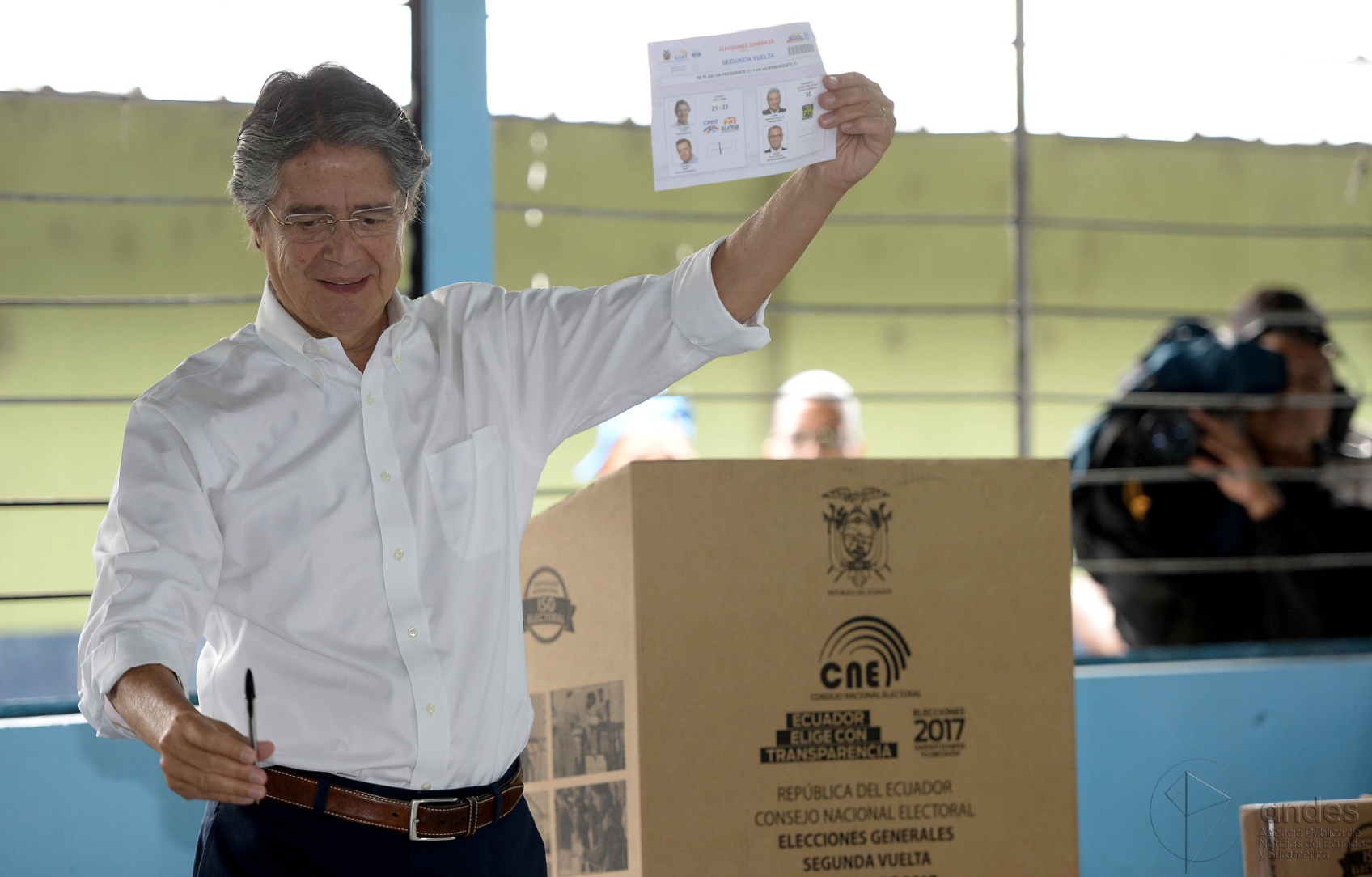On Februry 7th, Ecuador will be the first country in Latin America to go to the polls this year. These are general elections in which a presidential, bicameral, 137 assembly members and five Andean parliamentarians will be elected for the next four years. In the event that no candidate achieves an absolute majority or 40% with a lead of 10 points, a second round will be held. The elections are marked by a worn-out government, a new outbreak of the pandemic, a budding vaccination process, economic crisis and political fragmentation.
During the electoral campaign, a new way of proselytizing was inaugurated and something similar will surely happen in the next elections in Peru and Chile. The closest precedent was Bolivia. In Ecuador, tours, caravans and rallies were limited due to biosecurity measures determined by the Government. Propaganda strategies exacerbated the use of social networks, where platforms such as Tik Tok turned candidates into comedians in a movie, which they possibly did not intend to star in digital format.
There are two aspects that particularize this election. The first is the importance of the youth vote, because it represents approximately 44% of the electoral roll. People from the age of 16 are eligible to vote, and the second is the number of candidates for all the offices. It is unprecedented that 16 candidates are running for the presidency and that 283 political organizations, including national, local, cantonal and parochial parties and movements, are also qualified for the electoral competition. There are five or six times more candidates than dignitaries.
The number of aspirants to the first magistracy of the State introduced a scenario of fragmentation and dispersion. It is very possible that the candidates with greater possibilities do not increase the vote in their favor, because it could be distributed without any logic among so many contenders, besides the fact that there are several candidates of the same tendency, despite the fact that it has been a constant in the symbolic construction in the discourse of the participants to present themselves as apolitical. It would seem that the use of ideology is functional to the different segments of the electorate.
Surveys have been the main protagonists, despite the impossibility of gathering information in person. Never before had there been such a large number of results circulating through the networks. Most of them have coincided in three candidates with more possibilities (Andres Arauz, Guillermo Lasso and Yaku Perez), but not in the position of the first two nor in their difference of votes. However, after one week there are still 40% who have not decided their preference. This data is key, due to absenteeism, fragmentation and hidden vote.
Dichotomy in the election
Two major political orientations with their economic projects are in dispute in this contest: one that comes from the Citizen Revolution and close to the governments of the Socialism of the XXI Century, under the leadership of the former president, Rafael Correa (2007-2017) with his candidate, Andres Arauz, and the other, which is contrary but with different nuances in two options. On the one hand, the more liberal version led by the banker candidate Guillermo Lasso and on the other hand, the indigenist one that defends the rights of nature opposed to the extractivism of Yaku Perez for Pachakutik.
The election is caught in the dichotomy of correism versus anti-correism, however, the latter ranges from the extreme left, passing through the center right and left to the right. That is to say, it is not an ideological confrontation, but a confrontation against the leadership of former President Correa and what it has meant for politics: the constitution of a hyper-presidential model that is enshrined in the 2008 Constitution, the configuration of a predominant party system, a delegative democracy that makes the president govern without accountability because the people trust him.
Regarding the economy, the elections opened the discussion on three models by the candidates. On the one hand, there is the centralized economy with the total protagonism of the State proposed by the Citizen Revolution. Secondly, there is Guillermo Lasso’s proposal of a free market economy with glimpses of social aid without this making him a social democrat and the option that is presented as radical to the non-use of natural resources (mining and oil), because it bets on the green economy.
Inevitable agenda for the candidates
The consequences of the pandemic have conditioned the offers of the candidates in two facts: the execution of a massive vaccination plan and the generation of employment. The first is answered because Ecuador ranks among the first places in mortality rates in the world and the second, because in the last year about 600,000 jobs have been lost according to the National Institute of Statistics and Census (INEC). The other proposals occupy a residual place, although in third place is required to address insecurity and violence.
An issue that has played alone in the campaign and that has had a differentiated treatment by the candidates, that is to say, of greater and lesser intensity, is the fight against corruption and impunity, especially due to the judicial processes that register firm sentences against a significant number of former public officials who were involved in the Odebrecht cases, which crossed the political reality of several Latin American countries. The offer of several of them has been to recover what was stolen and use it to carry out works.
The big questions are several when at the closing of this analysis there is a 40% of undecided voters. The truth is that no candidate has clarified how to carry out his economic proposals, due to the immediacy of his messages and the lack of interest of the citizenship in politics in the face of the crisis that the majority of the population is going through due to the pandemic.
*Translation from Spanish by Emmanuel Guerisoli
Photo by ANDES News Agency












